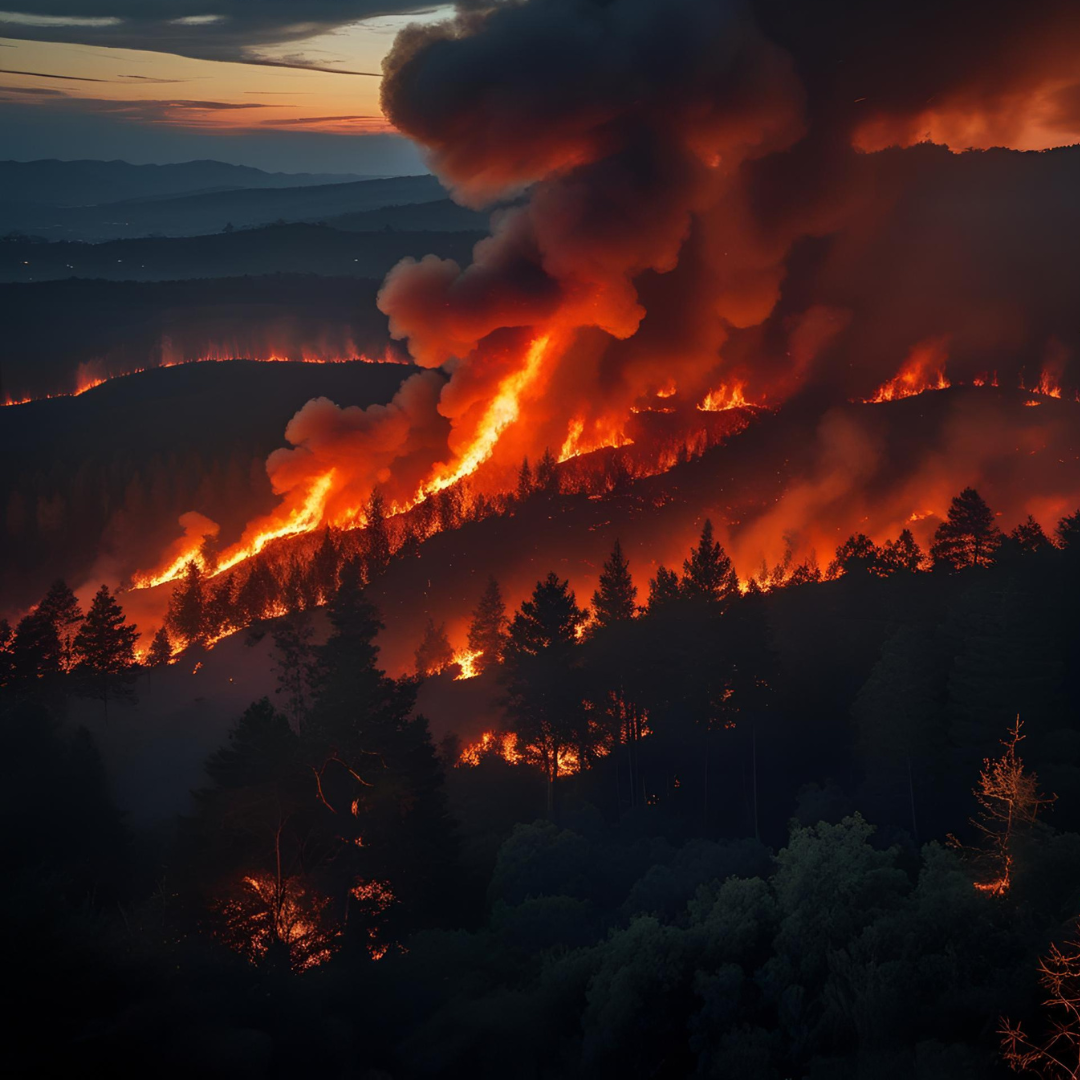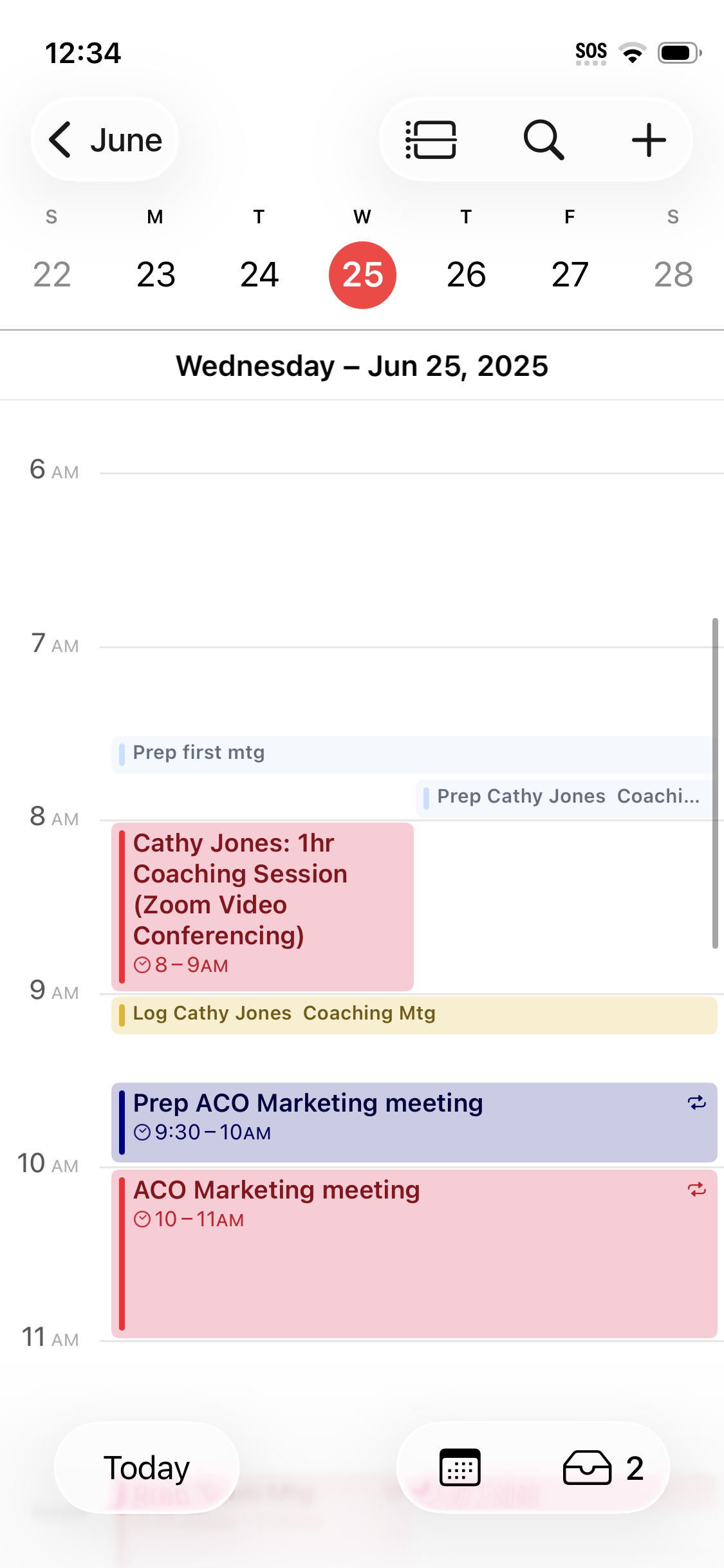Mind the Gap: Don’t fall thru the cracks when changing trains of thought
/The stereotypical view of ADHD, with a hyperactive person jumping between activities, might feel contradictory to the very real struggle with task switching or, as it's sometimes called, “transitioning.” Just because some of us are prone to being distracted by more things than the standard population does not mean that moving, especially intentionally, between activities isn't difficult.
Let's explore the different ways this challenge can show up for us and also ways to go about combating them:
🌊 Why Transitions Can Be So Hard
🔄 Task switching costs us in scarce resources
Every time we switch tasks, there's a little bit of an extra energy and cognitive resource hit we take. (That's why we need to be so strict about our notifications— each one we hear or see across our screen is a tiny task-switching action, even if we aren't consciously aware of it.)
And, for the ADHD folks, there's a risk we'll fall down an accidental side quest we bump into between activity A and activity B. (Like my spouse asking what took so long to fill the bottle for our offspring last night because I started eating my late dinner. 🤦♀️)
There's this eternal ADHD tradeoff: Will we risk the transition? Or try to keep doing the same thing until we're super sick of it and don't want to touch it again for months?
🔥 Hyperfocus makes it worse
Hyper focus can be great when we're working on the right thing. It feels good to be in a flow state-- some of us need it for our mental health. But it can be so hard to pull out of it when it's time to transition to something else. It gets harder the more tired we are.
If you're afraid of losing your place, try capturing where you are and what you plan to do next when you return. Maybe write out the problem you're trying to solve. Any details that will help you leave feeling more confident you can come back to it later.
🚨 Jarring transitions can be painful
A transition can feel far worse when we are suddenly yanked to it without warning. Some of these whiplash events are unavoidable, and sometimes we can exercise agency or planning to save some nervous system whiplash. (These might be old news to you, but sometimes it's a revelation to ask for what we need.)
Where possible/appropriate:
- Can you ask the interrupter to give you a few minutes to wrap up what you're working on, and then be more able to be present with them?
- If there's an appointment you know about in advance, can you set alerts or alarms to prepare yourself and give yourself some transition time?
- How much time is helpful for you to wrap up one thing and prepare for something different?
- (Then time it to test your guess-- sometimes, with ADHD, we forget about small transition tasks.)
More questions to ponder:
- What happens when someone interrupts you mid-flow?
- What kind of transitions feel most jarring for you?
- How does it show up in your body to react in emergency shifts or abrupt changes?
🧍♀️ Some people need more lead time
The specific difficulty of transitions will vary based on your particular brain and neurodiversity stew.
Transition needs vary: person to person, task to task, and by time of day. Even how well you've been sleeping or how much you've been exercising can affect your transition time.
It's worth observing yourself, being curious, and asking questions:
- What kinds of transitions are hardest when there's no prep?
- How much warning would you like before switching activities?
- What benefits your nervous system returning to a better state?
- What makes you feel ready for the next thing?
⏳ Time blindness complicates transitions
When we easily lose track of time, we can often be extra frazzled when it's time to move on to the next thing.
If we're deep into something or in alarm fatigue, we might miss cues in the environment or even those we set up for ourselves. (Ever fail to notice a calendar alert for an upcoming appointment?) Some people need stronger alerts, like alarms.
It's also hard to account for all the boring micro transition tasks needed when we're trying to decide how much time a transition needs. We might know how long it takes us to shower, but what about all the things between the shower and getting in the car to go somewhere?
- What kinds of transition cues do you often miss?
- Why does time blindness make it feel like "suddenly" everything is on fire?
- What reminders have actually worked for you--or totally failed?
🛠️ Ideas to Ease Transitions
🎶 Transition rituals
Many people benefit from using similar steps to wind down from an activity or gear up for the next one. After being established, these can cue your brain to what's coming. (Though if you're someone with a very active inner rebellious teenager who balks at all imposed structure, it's important to bring them to this metaphorical discussion, or maybe save it for working with a professional coach or a therapist.)
You could use as many of your senses as seem relevant or helpful. Maybe there's a theme song or music genre for different activities? A tea you drink? An atmosphere or picture to look at? Or perhaps you just want the traditional physical actions to cue your brain about what's next.
- What helps you wind down one task and gear up for the next?
- Do any sensory cues (music, movement, visuals) work better for you?
- Have you ever tried a ritual that helped once and never again?
- How might a ritual give your brain a sense of safety or control?
Old videos related to transitions and routines:
- Start next thing faster with routines (I talk a lot about brain cues to start the next task): https://youtu.be/wVOZ_KkzjiA
- Set Focus Mode to queue for routines/rituals: https://youtu.be/-A10YwaIDZ4
- Starting a thing with lower willpower (part of a morning ritual): https://youtu.be/gei55zeLdo4
- Set the mood for Romance (more on environmental cues for an activity): https://youtu.be/wiy0X0jvw_I
📅 Allow time in your calendar for transitions
If you need transition time between activities, try putting them in your actual calendar. (Though we strongly suggest in a different, less attention-getting calendar/color than your actual appointments. Mine is called "Now" and is a very light blue. It says things like "Prep ___ Coaching session". And why can you schedule meetings on my booking system in 15 minute increments? Because I require 15 minutes between coaching sessions to wrap up the previous person and get into the headspace to coach the next.)
We often try to cram in so much and feel so behind that it might feel like heresy to ask someone to block off more time that isn't work. But if it realistically is taking time to move from one thing to be mentally present in the next, maybe that calendar would feel more true if it represented the transitions already happening. This can help us plan better in the future-- when we make agreements we can keep and improve our mental health while doing so!
🤗 Self-Compassion and Community Support
Consider this your reminder to be self-compassionate during these transition times—self-judgment only makes transition times harder. Instead, consider examining the underlying issue to start solving it.
Where needed, seek out a community that can help normalize this struggle. Seeing what other people do in their very real transition struggles makes it easier to accept and plan for our own. What are they doing that’s working? What hasn’t worked for them?
There’s always our nerdy ADHD Guild, but there are other Neurodivergent communities out there. It’s better to start somewhere and move on from there if it isn’t a good fit than to keep struggling alone because you haven’t decided which community to join.
- What would it look like to be kinder to yourself in moments of transition stress?
- What kind of support would you offer someone else? Can you offer it to yourself?
Next time you experience a struggle like this, hopefully, at the very least, you will be able to recognize a challenging transition for what it is.
Best,
Brittany
P.S. To our readers who identify as LGBTQIA+, y’all are already aware of how difficult it can be to transition. (And, yes, this topic was picked as a 😉) Happy Pride month! 🏳️🌈🏳️⚧️




